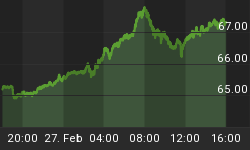Long ago, in a faraway place, Robinhood, now the world’s most popular trading app said its mission was to stand up for the little guy, democratize finance and level the playing field, musch like it’s legendary namesake.
The government disagrees.
In yet another legal hurdle, Robinhood has been fined $70 million by financial regulators for misleading customers and causing them to lose millions of dollars
The Financial Industry Regulatory Authority (FINRA) wrote in a complaint Robinhood had inflicted "widespread and significant harm" on millions of customers by providing them with false information about their investments.
FINRA also said that Robinhood failed to reasonably maintain its technology and neglected to do proper due diligence before approving customers for complex trades called options.
The $70-million fine was the highest ever levied by FINRA, and comes as Robinhood is set to go public in the second half of this year
“The false and misleading information concerned a variety of critical issues, including whether customers could place trades on margin, how much cash was in customers’ accounts, how much buying power or ‘negative buying power’ customers had, the risk of loss customers faced in certain options transactions, and whether customers faced margin calls,” FINRA explained.
More specifically, and by way of example, young options trader Alex Kearns committed suicide last June after seeing a negative portfolio value that did not represent his actual balance.
FINRA also pointed out Robinhood’s system crash last March when the market was tanking and volatility was at an all-time high. During this period, the Robinhood platform continuously crashed.
Robinhood attributed the outages to an infrastructure "instability" that kept systems from communicating with each other. The issue prevented clients from accessing its app, website, and help center.
The company was also involved in meme-stock frenzy from January when it restricted trading unfairly (amid a liquidity crunch) after heavy trading of GameStop and AMC.
As a result of those restrictions, Robinhood users filed lawsuits, called for a boycott and several Congressional hearings were held. Still, the Gamestop saga wasn’t mentioned in FINRA’s ruling.
Robinhood, neither admitted nor denied the charges, but consented to the entry of FINRA’s findings and committed to making improvements.
"We’ve enhanced our options offering, education about options, and how information is displayed in the app," the company said in a blog post.
Many Americans opened their first online trading accounts during the pandemic, using part of their stimulus checks to trade stocks.
All major online stock trading platforms have seen a surge in demand in recent months and new accounts spike in the first quarter. Many of the new users are young or even first-time investors. Over half of them are aged 34 or younger.
The start-up grew from one million subscribers in 2016 to six million accounts in 2018 and currently has more than 13 million. Just last year, Robinhood added 3 million accounts, with half of them first-time traders.
Due to the popularity of internet brokerages and inexperienced customers, brokerages’ accounts are being targeted on the “dark web.” Robinhood accounts being the most expensive, suggesting they are easier to break into. The hacked account credentials are available for prices ranging from $3 to $30.
Last October, an internal review by Robinhood found that nearly 2,000 accounts were compromised in a recent hacking spree that siphoned off customer funds.
















